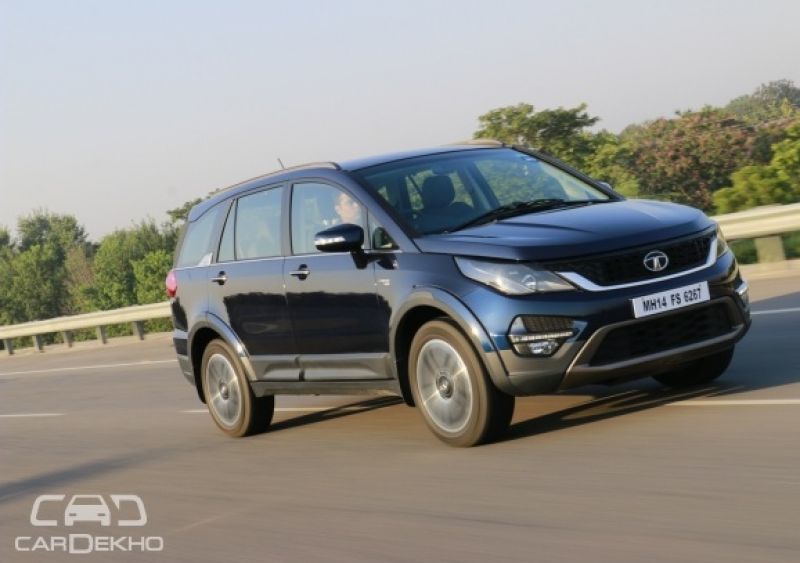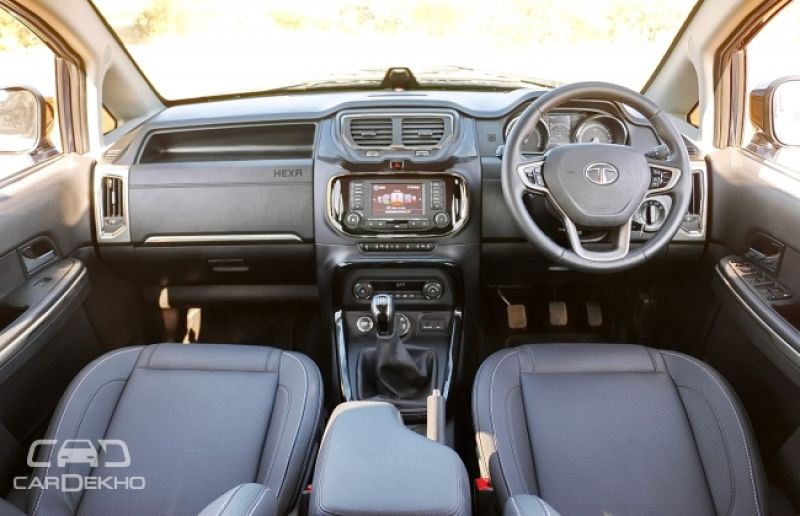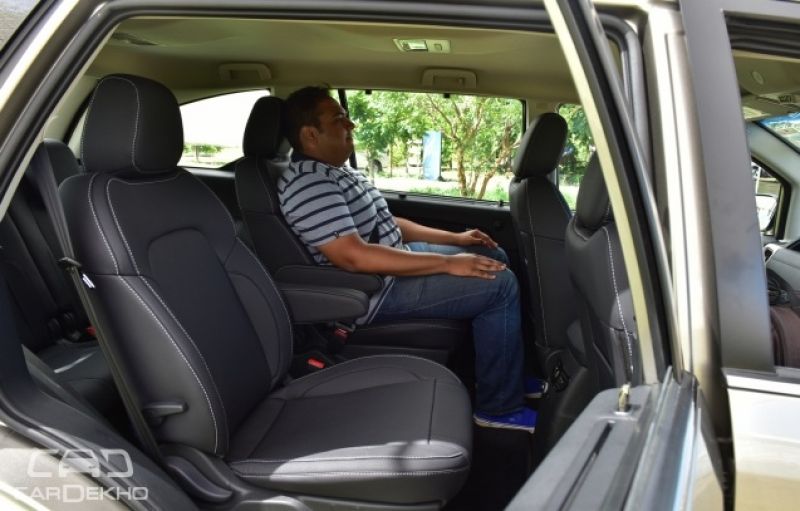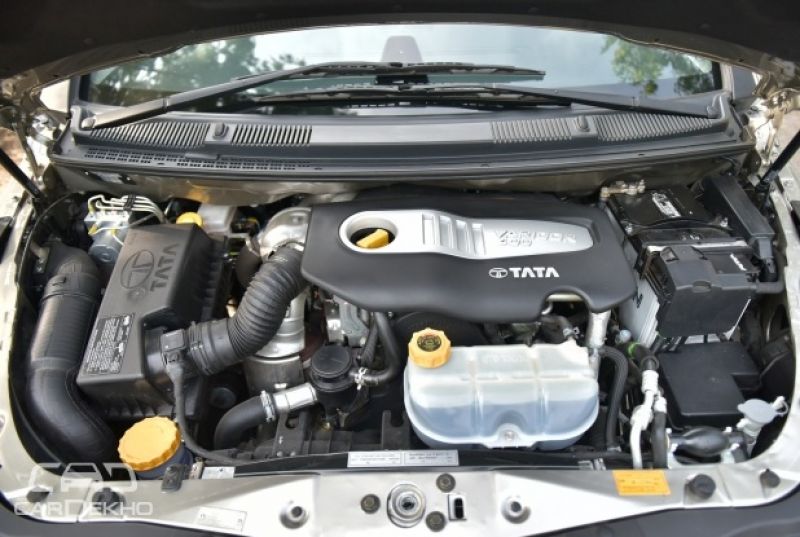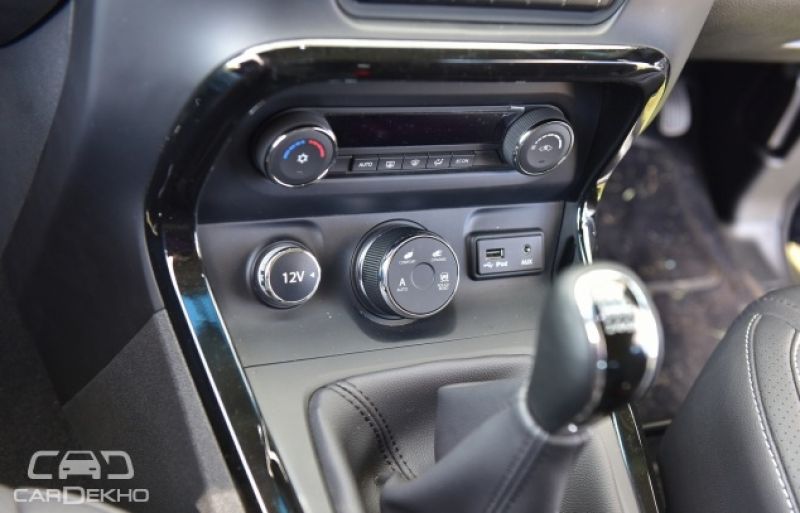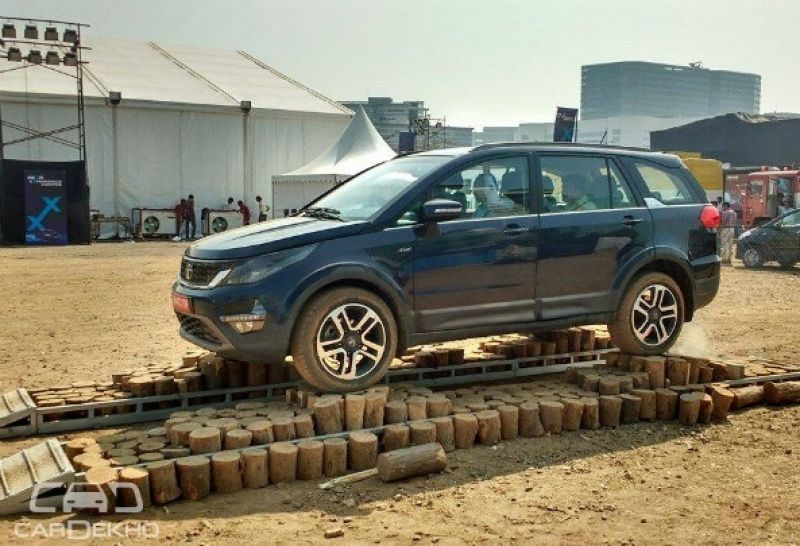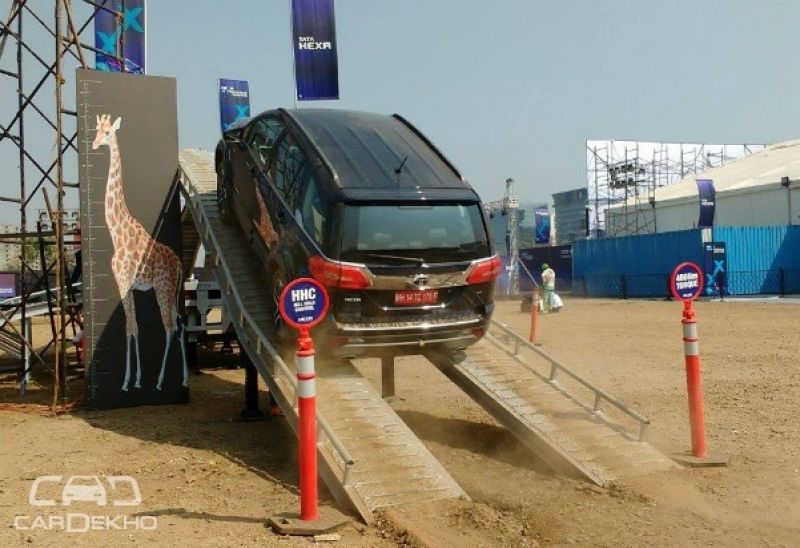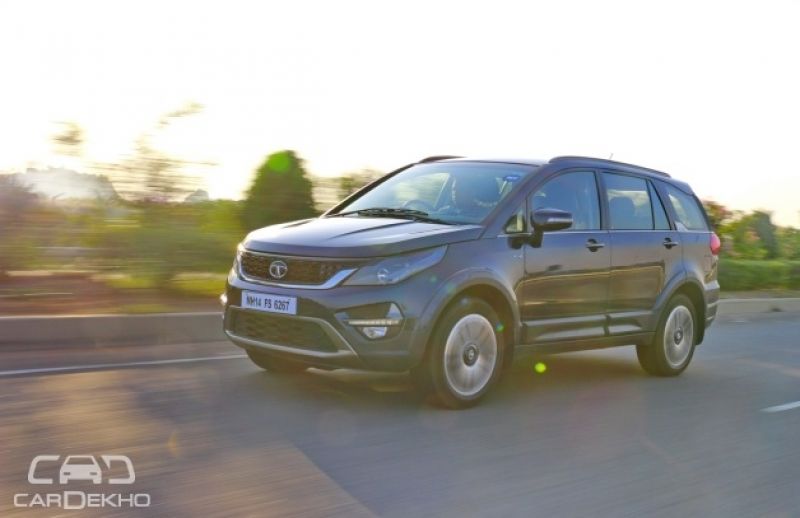Tata Hexa vs Tata Aria: What's new
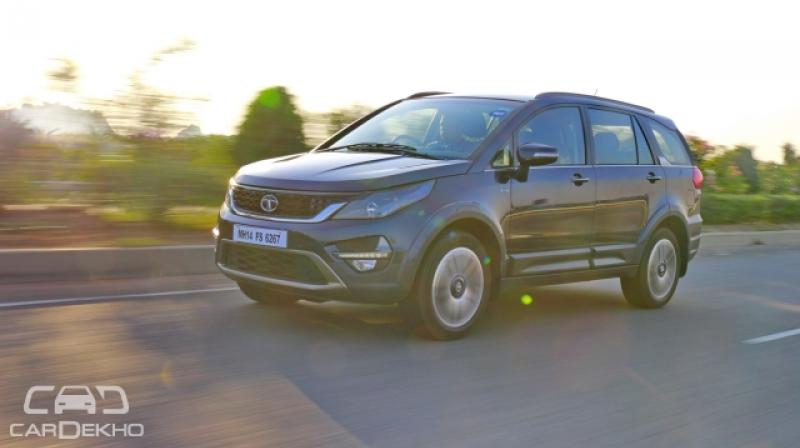
Tata's upcoming SUV – the Hexa looks quite promising. It is loaded with a list of features and also has a four-wheel–drive system, which makes it a more capable offroader. Although Tata claims it to be a completely new car, people still believe it's the dressed-up Tata Aria. Is it true? Let's find out.
However, ever since Tata showcased the production-spec Hexa, most assumed that it’s nothing more than a dressed-up Tata Aria. Scroll through the comments on the CarDekho Facebook page, and it wouldn't take you too long to find someone who firmly believes in it too. Is that really the case? Let's delve deep into the Hexa and figure out!
What has evolved?
1. Design
Aren't we glad! It's almost as if the designers at Tata sent the Aria to the gym and put it on a diet full of protein. The 'Impact' design language has transformed the Aria from a van to a brawny crossover. The sheet metal is all new, and the updated aesthetics drip aggression. The shut-line for the hood has been moved higher, the grille is all-new, featuring hexagonal detailing, and the smoked-out projector headlamp set-up gives it some flair. Other touches, such as the horizontal LED daytime running lamps, the clever use of matte-black cladding and the 19-inch wheels add to the overall design. We're also glad that the vertically-stacked slender tail lamps have given way to chunky brick-like units.
2. Interiors
Step inside the Hexa and it will fill you with a sense of deja vu. However, that feeling is short-lived and dissipates once you take a good look around. A few elements, such as the headlamp switch, the top of the dash, and the twin gloveboxes have been carried over from the outgoing Aria, yes. But what's entirely new, far outweighs what's borrowed. For starters, the old, cluttered centre stack has been replaced by a chunky 'trunk' that houses the new 5-inch touchscreen ConnectNext infotainment system. The 10-speaker set-up has been carried over, but Tata claims to have fine-tuned it for over 1000 hours. The automatic climate control interface is all new, but Aria’s B- and C-pillar air vents for the second- and third-row occupants have been carried forward. Another addition comes in the form of the floor-mounted rear air-conditioning vents and a quick charge 12V socket for the second row.
The biggest update, however, is the six-seater configuration. While the Aria was amply spacious in the second row, most owners didn't like brushing shoulders with co-passengers. In fact, the six-seat layout is so integral to the big Tata, it is the main reason behind it being called the 'Hexa'. Other notable additions include the Benecke-Kaliko leather-feel upholstery, a new leather-wrapped steering wheel, new instrument cluster with a TFT screen for the multi-information display, and configurable ambient lighting.
3. Engine and Gearbox
The base XE variant of the Hexa will continue to feature the same 150PS/320Nm 2.2-litre diesel engine as the Aria. However, the mid-spec XM/XMA and the top-of-the-line XT/XTA/XT 4x4 variants will feature the updated version of the same engine with 156PS and 400Nm on tap. Notably, this spec first debuted with the Safari Storme. Tata has subjected the new tune to over eight lakh kilometres of testing, to iron out the rough edges.
And it isn't just the updated tune that's new. To extract every ounce of the added torque, the engine has been paired with a six-speed manual transmission, instead of a 5-speed unit. Not just that, Tata is also (finally) offering an automatic transmission with the Hexa. The 6-speed automatic was our pick among the two options. You can head over to our first-drive review to know how it fared.
4. Super Drive Modes
The 'Super Drive' modes might be named a tad too optimistically, but they do in fact work without a hiccup. The four modes are a derivative of the permutations and combinations between the engine, ESP and the torque-on-demand calibrations, and can be selected on the fly via a rotary dial placed ahead of the gear lever. Selectable modes include Auto, Comfort, Dynamic and Rough-Road, which are self-explanatory as to their intended purpose.
The Hexa functions as a 4x4 in Auto and Rough-Road mode, channelling power to the wheel with most traction. In the other two modes, it is rear-wheel driven. In comparison, the Aria featured the 'Adapterra' 4x4 system, which was limited to the Auto mode all the time.
5. Safety
While there's no denying that the Aria was loaded with technology, the Hexa pushes the game even further. While safety tech such as six airbags, anti-lock brakes with electronic brakeforce distribution and traction control have been carried over, a few extra features have cropped up in the Hexa's list.
To begin with, it features hill ascent and descent control which, in conjunction with the four-wheel–drive system, makes it quite capable off-road. A newer generation of ESP finds its way into the Hexa, adding roll-over mitigation to its kitty. Other additions include engine drag torque control (prevents wheel locking under engine braking), corner stability control (helps maintain line while cornering) and hydraulic brake assist.
Source: CarDekho.com

